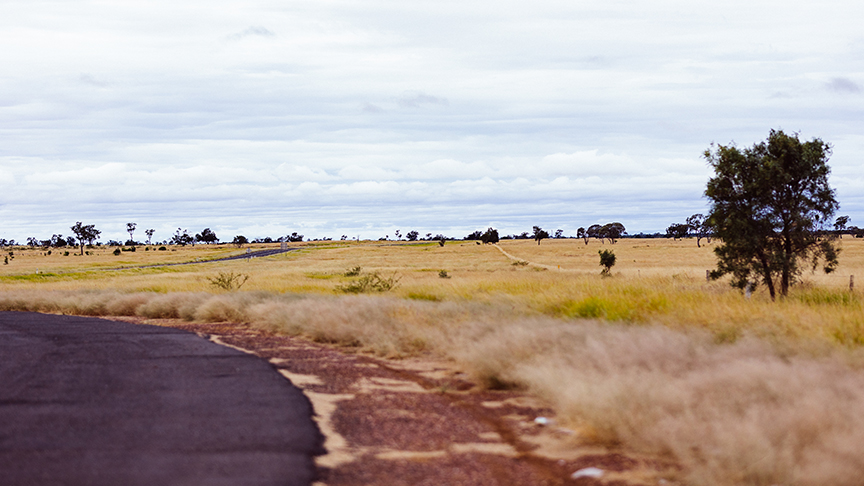
Download high resolution image [JPG 11876.34 KB]
Situated among a livestock and wildlife rich environment, Darling Downs and South West residents are being reminded that Q fever can be carried by domestic and wild animals.
Q fever is an illness caused by the bacteria Coxiella burnetii which is found in a range of animals such as cattle, sheep, goats, and kangaroos as well as in the general environment through dust and soil. The transmissible infection is typically caused by breathing in droplets or dust contaminated by birth fluids, faeces or manure, or urine from infected animals.
Darling Downs Health’s Public Health Physician Dr Priya Janagaraj said once infected, each person’s experience of Q fever will be different.
“Some people develop no symptoms, others experience fever, headache, weight loss, nausea, a cough, chills, fatigue and may develop chronic fatigue.”
Darling Downs Health’s Public Health Physician Dr Priya Janagaraj
Dr Janagaraj said individuals who are exposed to animals, animal products, and animal waste were particularly at risk of developing Q fever and they should consider getting vaccinated against the disease.
“Vaccination is particularly being encouraged for anyone working in high-risk industries including as abattoir and meat workers, farmers, veterinarians, animal hunters, wildlife workers, and dog and cat breeders. Pregnant women usually have asymptomatic illness, however have significant risk of being impacted by Q fever.
“It is important that pregnant women are aware of the potential risks with Q fever infection in pregnancy including low birth weight, stillbirth and miscarriage.
“The advice, which also applies to women who may not be sure if they are pregnant, is to stay away from animals that are giving or have recently given birth, or that have aborted,” Dr Janagaraj said.
To avoid the possible risk of Q fever infection in pregnancy, pregnant women or those planning pregnancy should:
- Not help ewes to lamb, or to provide assistance with a cow that is calving or a nanny goat that is kidding.
- Avoid contact with aborted or new-born lambs, calves or kids or with the afterbirth, birthing fluids or materials, such as bedding or clothing contaminated by such birth products, vaccines or recently vaccinated sheep.
- Avoid handling, including washing, clothing, boots or any materials that may have come into contact with animals, their young or afterbirths. Potentially contaminated clothing will be safe to handle after being washed on a hot cycle.
- Avoid moving, handling or mowing over fresh or aged faeces or manure which may result in the creation of dust or spraying of particles across paddocks.
- Ensure contacts or partners who have attended lambing ewes or other animals giving birth take appropriate health and hygiene precautions, including the wearing of personal protective equipment and clothing and adequate washing to remove any potential contamination.
- Scrub hands with soap and water and keep fingernails short and clean. Hand sanitisers aren’t appropriate to use in this setting.
- Pregnant women should seek medical advice if they experience fever or influenza-like symptoms, or if concerned that they could have acquired infection from a farm environment.
Q fever symptoms begin about 2–3 weeks after exposure to the bacteria. However, this period can be as short as 4 days and as long as 6 weeks.
Darling Downs and South West residents can contact their local GP if they’re concerned about Q fever or experiencing symptoms.
People who work in fields such as abattoirs, feedlots, livestock or dairy farms can contact their local GP to discuss Q fever vaccination or are concerned about Q fever and experiencing associated symptoms.
There were 86 notifications of Q fever across the region in 2023, representing a near 80 percent increase in notifications when compared to 2022. The region’s large agricultural industry means cases are not uncommon.
For more information visit the Q Fever Queensland Health website.